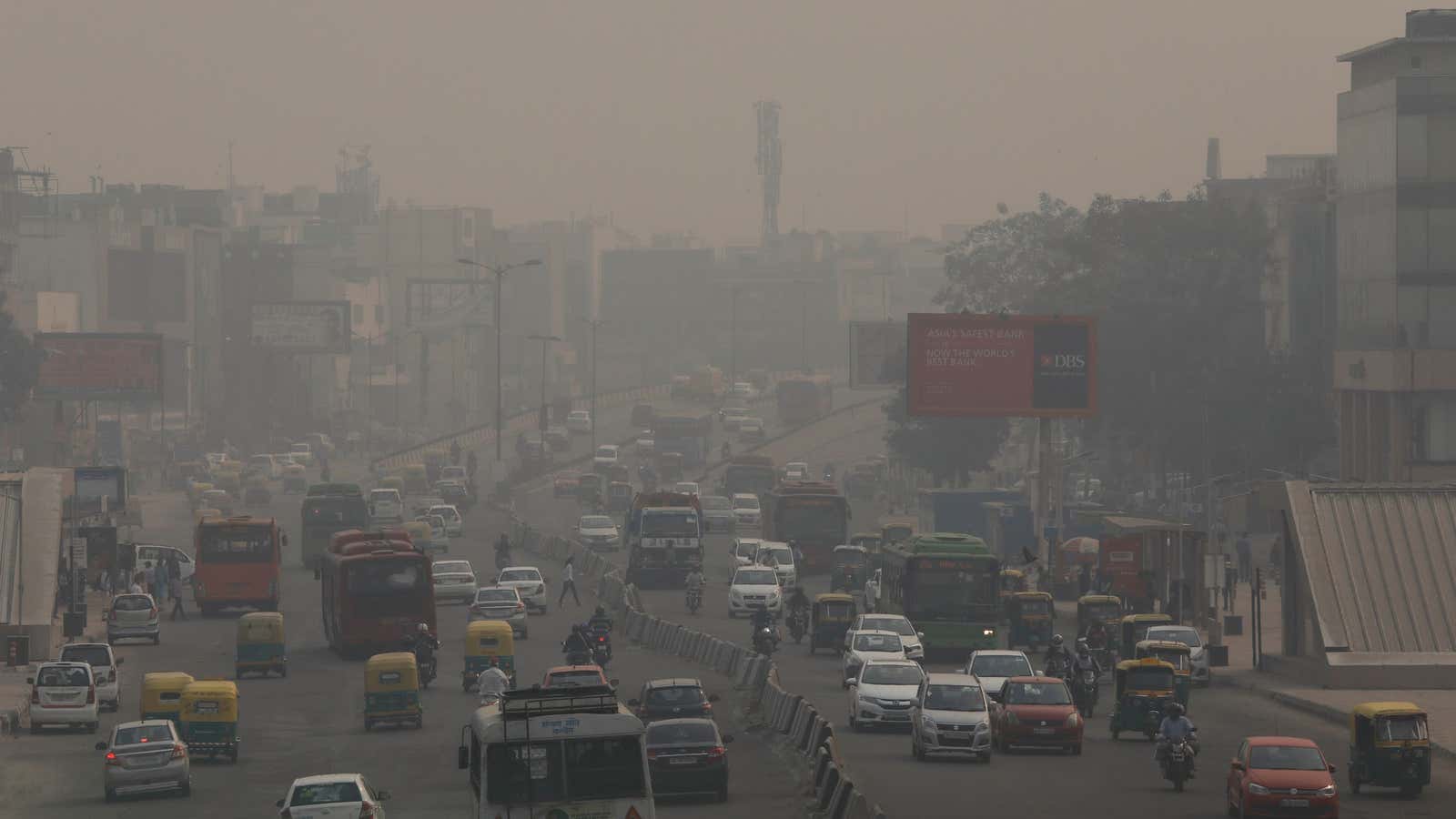Air quality in India is so poor that that 1.2 million deaths in the country last year can be attributed to air pollution.
A nationwide survey, published in Lancet Planetary Health on Dec. 6, found that at least 12.5% of deaths in 2017, or one in eight, can be attributed to unusually high rates of lower respiratory infections, heart disease, strokes, lung cancer, and diabetes, which are a result of severe air pollution in a certain percentage of cases. Of the 1.2 million who died from air pollution-related causes, 51.4% were younger than 70 years old.
In total, more than three quarters of India’s population is exposed to air pollution that’s higher than the recommended level set by India’s government. That level, in turn, is four times the maximum recommended by the World Health Organization. No Indian state achieves pollution levels at or below the WHO’s limits.
On average, people in India have their life expectancy cut short by 5.3 years thanks to air pollution, according to a Washington Post report (paywall) published last month. Those in two districts east of Delhi—Hapur and Bulandshahr—have their life expectancy reduced by 12 years, which is the greatest reduction in life expectancy due to air pollution anywhere in the world.
The Lancet study adds to a growing body of evidence about the health impact of air pollution, which shows that those living in the world’s most-polluted areas, predominantly in Asia and Africa, are the most affected. Reducing global air pollution to levels recommended by the WHO would increase life expectancy worldwide as much as eradicating breast and lung cancer would, Zoë Schlanger reported for Quartz in August.
In India, where industrial emissions, cars, and the burning of crop residue, wood, and charcoal are standard features of daily existence, it will require significant political willpower for air pollution levels to fall. Perhaps the growing evidence on the millions of deaths caused by air pollution will spark that change, but don’t hold your breath.
